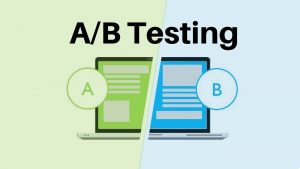
In today’s hyper-connected world, social media has become the lifeblood of communication for brands and individuals alike. However, this powerful tool can also become a double-edged sword during a crisis. A single misstep can lead to a public relations nightmare, potentially damaging a brand’s reputation in a matter of minutes. Therefore, understanding how to manage social media effectively in a crisis is crucial for protecting your brand’s image and maintaining public trust.
In this comprehensive guide, we will explore the essential strategies for navigating social media crises, including the importance of crisis role-playing exercises, the use of pre-approved messaging templates, and the role of social media listening tools. We will also highlight how Sociobo’s services can support your social media management efforts, particularly in times of crisis.
Understanding Social Media Crisis Management
Social media crisis management involves a set of actions that organizations take to recognize, identify the root cause of, respond to, and handle a crisis that unfolds on social media platforms. According to Sprinklr, effective crisis management requires swift and coordinated responses to mitigate potential damage and maintain public trust.

In essence, a social media crisis can stem from various sources, including negative customer feedback, product recalls, data breaches, or even external events that may affect the brand’s reputation. The key to effective crisis management lies in preparedness and the ability to respond quickly and strategically.
The Importance of Preparedness
Preparedness is the cornerstone of effective crisis management. Organizations must be equipped with the right tools, strategies, and protocols to address crises as they arise. This includes establishing a crisis management team, developing a crisis communication plan, and leveraging social media listening tools to monitor online conversations.
Crisis Role-Playing Exercises
One of the most effective ways to prepare for a social media crisis is through crisis role-playing exercises. These simulations provide teams with practical experience in managing high-pressure situations, improving decision-making skills, and identifying potential weaknesses in crisis response plans.
Key Components of Effective Crisis Role-Playing Exercises:
- Realistic Scenario Development: Simulations should mimic real-world crises, incorporating elements such as social media posts, stakeholder emails, and broadcast news coverage. This helps teams practice their responses in a controlled environment.
- Multi-Channel Communication: Participants should be challenged to manage communications across various platforms, including social media, email, and traditional media outlets. This ensures a cohesive message is delivered across all channels.
- Real-Time Adaptability: Facilitators should adjust the scenario in real-time to test the team’s ability to handle unexpected developments and escalating situations. This helps teams become more agile in their responses.
- Cross-Functional Team Involvement: Simulations should include participants from various departments, such as communications, operations, and customer service, to ensure a coordinated response.
- Post-Exercise Analysis: Following the simulation, teams should receive detailed feedback, including data exports and performance analysis, to identify areas for improvement.
By incorporating crisis role-playing exercises into their social media crisis management strategy, organizations can build confidence, improve response times, and ultimately protect their brand reputation more effectively when real crises occur.
Pre-Approved Messaging Templates
In addition to preparedness exercises, having pre-approved messaging templates is crucial for an effective social media crisis management plan. These templates provide a foundation for rapid, consistent responses during high-pressure situations, allowing organizations to communicate quickly and effectively with stakeholders.

Key Elements of Pre-Approved Messaging Templates:
- Acknowledgment Statements: Brief messages that recognize the issue and assure the public that the organization is aware and taking action.
- Apology Templates: Carefully crafted statements expressing regret and empathy, tailored to different crisis scenarios.
- Status Update Frameworks: Structured formats for providing regular updates on the situation and the organization’s response efforts.
- Call-to-Action Messages: Templates that guide affected individuals on what steps to take or where to find additional information.
- FAQ Templates: Pre-written answers to anticipated questions that can be quickly customized and deployed.
When developing these templates, organizations should use clear, concise language that aligns with their brand voice. They should also ensure that templates are adaptable to various social media platforms and review them regularly to reflect current best practices.
Social Media Listening Tools
Social media listening tools are essential for brands to monitor, analyze, and respond to online conversations about their products, services, and industry. These tools aggregate data from various social platforms and provide insights that can inform crisis management strategies and overall marketing efforts.
Some of the top social media listening tools include:
- Sprout Social: Offers a dedicated Listening tool that processes up to 50,000 posts per second and listens to around 600 million messages daily. It features a query builder that allows businesses to monitor keywords and hashtags without requiring Boolean knowledge.
- Brandwatch: Extracts valuable conversational insights from millions of sources, analyzing both historical and real-time conversations to identify current trends.
- Hootsuite: Provides a concise dashboard for viewing and responding to messages, comments, and brand mentions across multiple social media accounts.
- Talkwalker: Offers more than 50 filters to monitor conversations across 150 million data sources, including blogs, forums, videos, news sites, and social networks.
- Mentionlytics: An AI-powered tool that offers real-time monitoring and analysis of online conversations, tracking brand mentions, keywords, and hashtags across major social media platforms and the web.
By leveraging these tools, brands can gain valuable insights into customer sentiment, identify potential crises early, and make data-driven decisions to improve their social media crisis management strategies.
The Role of Sociobo in Crisis Management
Sociobo is an exclusive program designed to help individuals and businesses leverage social media to build their personal or brand identity. By employing a technique known as “social proof aggregation,” Sociobo systematically enhances a brand’s visibility, authority, and influence on social media platforms.

Enhancing Brand Credibility
During a crisis, maintaining credibility is paramount. Sociobo’s services can help brands bolster their social media presence, making them more attractive to organic followers. By utilizing aggregated followers, brands can create an impression of authority and trustworthiness, which is crucial when addressing crises.
Aggregated followers differ significantly from fake followers. While fake followers are often inactive and can harm engagement rates, aggregated followers are high-quality bot accounts that engage with your content. This boosts engagement rates, improves profile discovery, and positively impacts the trust score of your social media profiles in algorithms.
Building a Stronger Brand Presence
In times of crisis, a strong brand presence can make all the difference. Sociobo’s services can help brands amplify their messaging and reach a wider audience. By enhancing social media metrics, brands can promote their content more effectively in social media algorithms, attracting genuine followers and creating a robust brand presence.
Custom Solutions for Your Needs
Sociobo offers customized experience packages for various platforms, including Instagram, TikTok, YouTube, Facebook, and Spotify. This flexibility allows brands to tailor their approach based on their specific audience and crisis management needs.
Managing social media in a crisis is a multifaceted challenge that requires careful planning, effective communication, and the right tools. By incorporating crisis role-playing exercises, pre-approved messaging templates, and social media listening tools into your strategy, you can prepare your organization to respond swiftly and effectively to any crisis that arises.
Moreover, leveraging Sociobo’s services can enhance your brand’s credibility and visibility, providing you with the support you need to navigate challenging situations confidently.
In a world where public perception can shift in an instant, being prepared is not just an option; it’s a necessity. If you’re ready to take your social media crisis management to the next level, consider exploring Sociobo’s offerings. With their expertise in social proof aggregation, you can build a stronger, more resilient brand presence that stands the test of time.
Visit Sociobo.com today to learn more about how you can enhance your social media strategy and protect your brand during a crisis. Your brand’s reputation is worth it.






No comment yet, add your voice below!